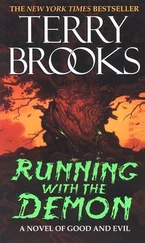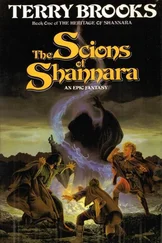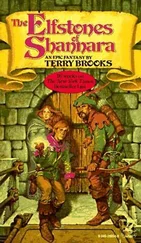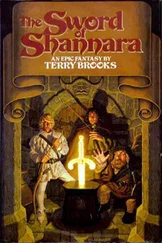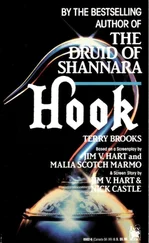All you have to do is look at the monitoring screens and you can tell. There’s nothing out there. Nothing that matters, anyway. A few people, sure. A few monsters, too. But nothing of importance. Nothing that is going to change what’s happened. We let it go too far for that. We let it decay like a set of bad teeth. We didn’t brush. We didn’t floss or rinse.”
His grin widened. Excellent analogy, he told himself. He had gone away from his usual narration, but he didn’t care. It felt good.
“You think about it a moment, you’ll see I’m right. We just ignored what was right in front of our eyes. We didn’t take care of business. Not the business that really mattered. We were too busy living our lives to do that. So now what do we have?”
He paused, considering. “I’ll tell you what we have. We have what we deserve.”
He saw both Abramson and Perlo nod in agreement and was encouraged. They understood. They knew he was right. That was a part of why they stayed with him. They liked listening to what he had to say. It helped pass the time for them, too.
Impulsively, he walked over to the command console and seated himself at the launch board. A faint memory surfaced of that time, now long past, when the last general strike had been called in from the National Command Authority, and he and the other key holder, Graves or whatever–now, that was an appropriate name–had activated the triggers to missiles housed in launch silos all over the country.
How long ago had that been, anyway?
He could do that again right now, if he chose. It was a thought that crossed his mind at least several times a day. His retinal scan and the keys slung around his neck were all that was needed. Once, he would have needed authority from farther up the chain of command, a direct order come down from the general. But there wasn’t any chain of command left. There wasn’t anyone left but himself. He had to accept that. All his efforts at communication with the outside world had failed. He still tried, now and then. He still kept an open channel on the broadband. He still scanned the surrounding countryside through the monitors. He still hoped.
But he knew it was pointless.
Why don’t you just do it?
He jumped at the sound of the voice. It was Perlo who had spoken. But Perlo never spoke! None of his buddies did. He wheeled his chair around and stared at the other’s face, shocked.
Really, I mean it. Why don’t you just do it?
He knew what Perlo was talking about, and he was vaguely resentful that the other man thought he had a right to make such a suggestion. It wasn’t up to him. He was dead, a ghost. What did he know?
But then he saw Abramson nodding in agreement. Abramson, for whom he had more respect, thought Perlo was right!
Wills stared at them for a moment and then turned back to the console, studying the blinking lights and the bright empty screens as if they had something to tell him. He thought about it for a long time, and the prospect became a faint buzzing in his brain that teased at him with feathery touches, causing him to itch all over.
Why not? He could launch just one, see what happened. Just one.
What difference could it possibly make?
Once, not that long ago, such an act would have been unthinkable. But he had become increasingly convinced that no one deserved to live once he was gone. After all, what had they done to help look after things? He had seen what was out there, and it wasn’t human. Or not human enough to matter.
Even so, he still required a better reason than that. He had that much discipline left in him.
You launch one, you might attract attention. Someone might come for you, get you out.
Perlo again. He glared over his shoulder at the other man, wanting him to mind his own business. The command center was his responsibility. The missiles were in his care. No one had the right to tell him what to do with them. Certainly not a ghost.
But Perlo did have a point. If there were still someone out there with the right training, they might be able to come for him. It was possible, after all. He couldn’t see everywhere. There might be someone left.
The faces of his wife and boys stared out at him from the framed picture on the shelf in front of him. He had abandoned them. He had left them to die. He could see it in their eyes. They knew.
He sat there for a long time, staring at nothing. He forgot about Perlo and Abramson. He forgot about everything but his dead family and his lost life. He began to cry softly.
“What the hell?” he whispered.
Impulsively he pulled out the red keys and inserted them into the locks. He leaned forward to allow for the retinal scan, waited for the clearance authorization to kick in, and turned the keys. The panel concealing the launch switches slid back. He heard the locks to the switches releasing, one after the other. And then the lights above the switches turned amber and everything was activated.
Just one.
He studied the switches intently, trying to decide which. There was a book with codes designating targets and launch sites, but he didn’t know where that was anymore. He wasn’t entirely sure he remembered the codes, in any case. Five years was a long time to remember something you didn’t ever use.
Abramson and Perlo were standing at his back, watching him. Anderson was there, too, come to join them. Maybe it was time, he thought. Maybe they knew. He studied the switches some more.
Finally, he flipped one.
The amber light turned green, blinking furiously. The missile was launched.
He waited for a response–any response–but there was none forthcoming. Not from the console, not from the screens, not from those watching, not even from his own emotional center. It was as if nothing had happened.
Because, he thought, nothing had. A missile was launched, a target was obliterated, and nothing was changed. Nothing would ever change again because there was nothing left.
He shook his head in despair. He was just so tired of it all, so sick and tired. None of it made any difference, did it? What was the point of anything that he did or didn’t do? He was just passing time until it ran out and he died.
He was just waiting for the inevitable.
Perlo’s soft whisper brushed his ear. Try another.
He was surprised to discover that he liked the idea. He liked it a lot.
Why not? Matter of fact, why just one?
He flipped them all.
THE BOY WHO WAS the GYPSY MORPH slept within the mists, encapsulated and sheltered in the way of the storybook princesses of old. He had no need offood or drink, and the passing of time meant nothing to him. Still, he was neither comatose nor unaware. Though he slept, he was hard at work fulfilling his destiny.
In a dream–like existence, that part of him that had always been a thing of wild magic was reaching beyond his human form and its limited abilities to complete the task of strengthening the barrier he had created to protect those who depended on him for their safety. The wild magic flew through the mists, an invisible presence, and everywhere it touched it left a part of itself in reserve. The mists must last a long time, it knew, and so they must have durability and resilience. No stress or strain, no matter how massive, must be allowed to break them down.
When the bombs exploded and the shock waves struck, the wall was ready. When the winds blew and the fallout began, the walls held firm. When the nuclear winter settled down across cities and plains, engulfing entire countries and in some cases whole continents, the wall kept it out. It was made of the same wild magic that creates a gypsy morph, magic rare and unfathomable, magic that comes along only now and then to do something that has never been seen before.
The King of the Silver River had understood its potential, had housed it when it had taken the boy’s form, had cared for and nurtured it, had released it back into the world when there was no other choice, and then waited to see what would happen. No one could ever know for sure how it would respond, not even him. Not even the Word could shape wild magic. It took its own form, as it had done since the beginning of time. It served its own purpose.
Читать дальше






